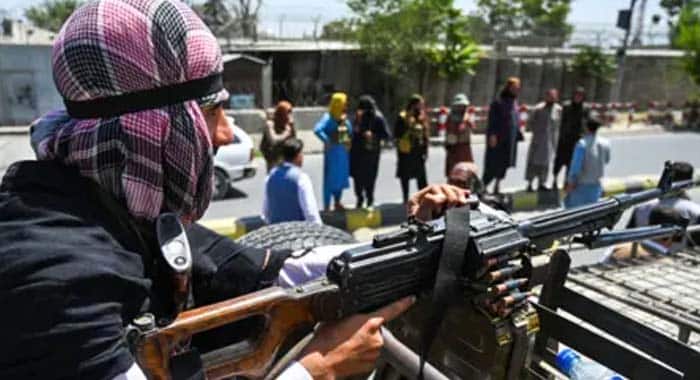A senior Taliban intelligence official has warned that the group could once again resort to suicide bombings to protect its rule, a stark threat issued shortly after former U.S. President Donald Trump confirmed efforts to reclaim Bagram Air Base in Afghanistan.
Taliban-run state television on Saturday broadcast an audio message attributed to Tajmir Jawad, deputy head of the Taliban’s intelligence service and long described as the “architect of suicide attacks.” In the statement, Jawad declared that the Taliban had relied on suicide operations to seize power and would be prepared to deploy them again to preserve its hold on the country.
Pledging to sacrifice himself “piece by piece” for the group’s survival, Jawad branded opponents as “infidels and occupiers.” While he did not name Trump directly, the timing of his remarks was widely seen as a response to the former president’s comments in London and Washington last week that the United States was seeking ways to regain Bagram, the largest U.S. military installation in Afghanistan before its fall to the Taliban in August 2021.
Jawad, a senior member of the Haqqani network, has a longstanding reputation as a key planner of suicide operations. He was appointed deputy intelligence chief following the Taliban’s 2021 takeover. Afghan officials under the previous government accused him of orchestrating major attacks, including the 2020 assault on Kabul University that killed 22 students and injured more than 40. Although claimed by Islamic State, Afghan authorities said Jawad played a central role in coordinating the strike.
He has also been linked to the suicide bombing at Kabul Bank in Nangarhar province, which left dozens dead, further cementing his role as a central figure in the Taliban’s militant strategy. Since assuming his intelligence post, Jawad has repeatedly signaled that suicide bombings remain a viable tool for the Taliban to defend its authority.
Analysts warn that the remarks underscore the Taliban’s enduring reliance on violence as a means of political survival, raising fresh concerns over Afghanistan’s fragile stability. They also highlight the potential complications for Washington as it weighs the strategic value of Bagram against the risks of renewed engagement with the Taliban.





